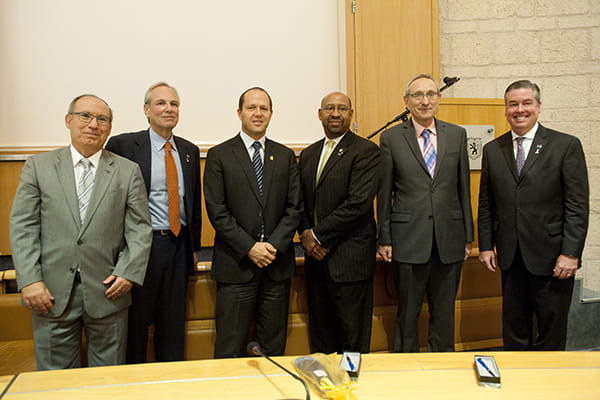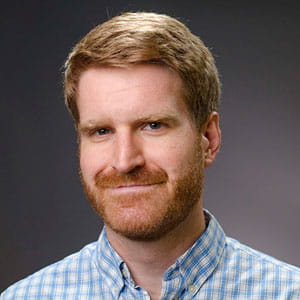'Dream Teams' of Pediatric Problem-Solvers Could Emerge From Drexel-CHOP-Hebrew University gathering

- Drexel-Study-Finds-Early-Intervention-Helps-Most-Autistic-Children-Acquire-Spoken-Language
- Mosquitoes' Bloodsucking Tubes Could Enable High-Definition 3D Printing
- Drexel Selects New, World-Class Life Sciences Building at 3201 Cuthbert Street for Medical Research Operations
- Winter 2026 Mini-Grant Recipients

If you put an engineer from Drexel, a doctor from The Children’s Hospital of Philadelphia (CHOP) and a pharmaceutical researcher from Hebrew University of Jerusalem in a room, what do you get?
That’s not the start of a riddle. It’s what will happen at a symposium set for next week, and the three institutions hope what they’ll get will be research “dream teams” that can tackle children’s health issues in innovative ways.
“Advancing the Health Care of Children” is a collaborative symposium building on a three-way research partnership signed during Philadelphia Mayor Michael Nutter’s trade mission to Israel in November.
The signing ceremony made the partnership official, and this symposium is designed to get collaborative research projects going in practice, said Julie Mostov, Drexel’s vice provost for global initiatives.
“We said, ‘OK, how can we bring our colleagues together?’” Mostov said.
The symposium will focus on pediatric translational research — turning lab science into treatment for patients. Through panel discussions and breakout sessions, the goal is to create “dream teams” that include researchers from each institution. Those teams could open up new avenues of research and compete for funding, Mostov said.
“Sometimes you’re pushed by people who come with a different perspective from a different place,” she said.
The Drexel researchers joining CHOP’s medical experts and Hebrew University’s drug-delivery leaders at the conference will come from the College of Medicine as well as other disciplines including biomedical engineering, electrical engineering, materials engineering, nanotechnology, biology and even game design. Some of them don’t do any current work related to pediatrics, but their field could be applied to the challenges at hand.
“It forces everybody to break down the disciplinary boundaries,” Mostov said.
The symposium will take place at CHOP, with the first two days including a variety of group sessions and the third day devoted to private meetings of potential “dream teams.” All told, Mostov said, the conference can help expand Drexel’s global reach, produce research that could be commercialized and further establish Philadelphia as a research center.
“Not only is this great for meeting unmet needs of children and solving some really thorny problems in pediatric medicine,” she said, “but it will also bring together these institutions in a really innovative way.”
In This Article
Drexel News is produced by
University Marketing and Communications.
